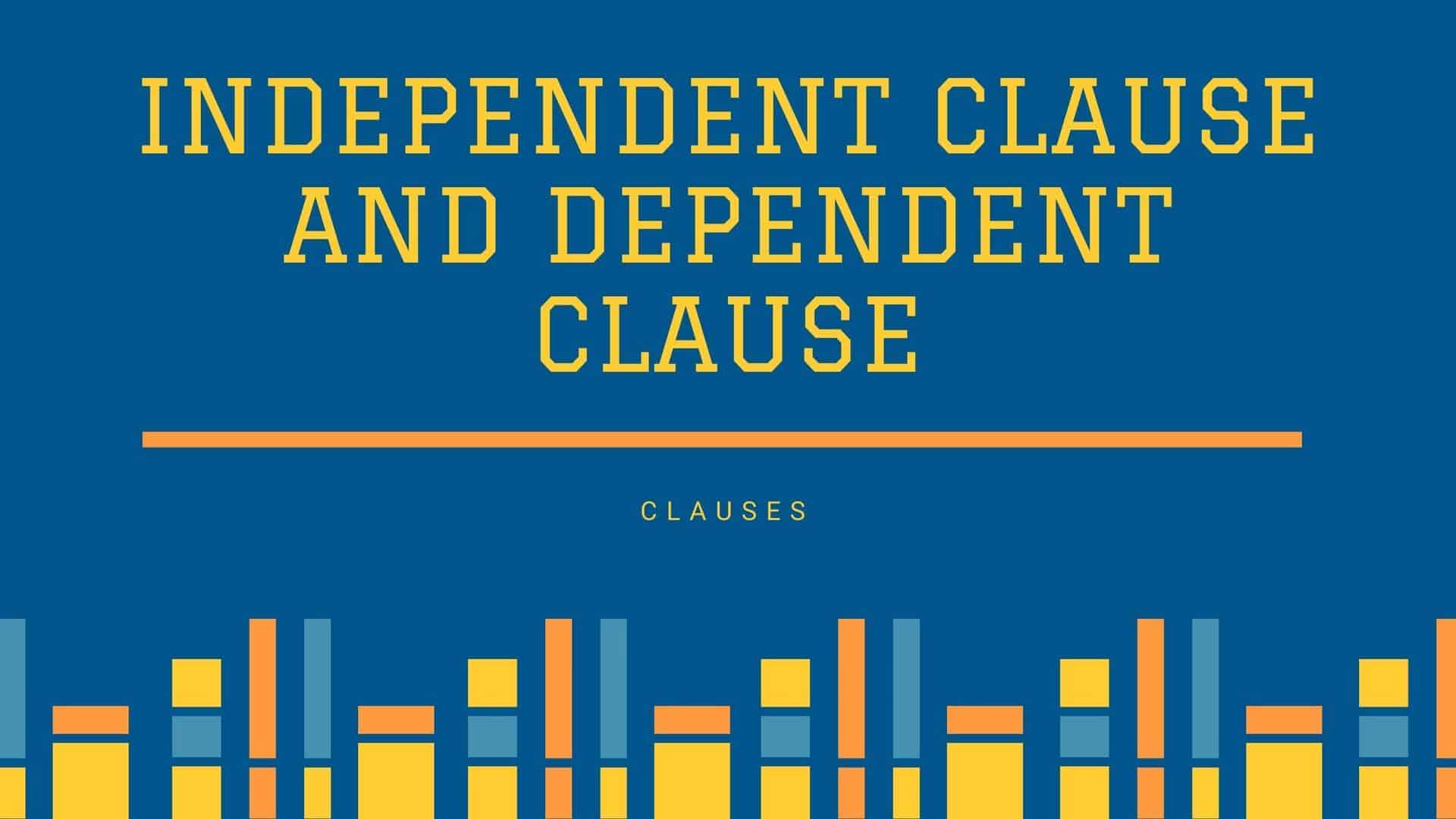What is Independent Clause and Dependent Clause?
Independent Clause and Dependent Clause are the major structures of the sentences. Let us examine the Dependent Clause first.
What is a Dependent Clause?
A dependent clause is a clause that cannot express a complete thought. Like any clause, it has a subject and a predicate of its own. It is also called a subordinate clause. As it cannot convey a complete idea, it cannot stand alone as a sentence. It has to depend on the main clause.
Dependent clause examples:
- When I was coming from the office, I saw my friend waiting for the bus.
In the above sentence, consider the clause “When I was coming from the office“. This clause has asubject, “I“, and a predicate, “was coming from the office“. But it is not conveying a complete thought. Therefore, it is a dependent clause.
Some more examples of Dependent Clause:
- I can’t come with you now because my papa has asked me to complete my homework as soon as possible.
- What I said is true.
- Unless you come with me, I too won’t attend the party.
- When I scolded my son, his face turned gloomy.
The highlighted portions are dependent clauses.
There are three types of dependent clauses. They are:
- Noun clause
- Adjective clause or relative clause
- Adverb clause
What is an Independent Clause?
An Independent Clause, also called the main clause, is a clause that expresses a complete thought. Like any other clause, it has a subject and predicate. As it conveys a complete thought, it can stand alone as a sentence. When it alone stands as a sentence, it is called a simple sentence. When an independent clause combines with a dependent clause, a complex sentence is formed, and two independent clauses combine to create a compound sentence.
Independent Clause Example:
- When the bell rang, students went out of the class.
The above sentence contains two clauses. Viz. When the bell rang, the students went out of the class.
“When the bell rang“, does not express a complete thought. But it has got a subject (the bell) and a predicate (rang). We have already learnt about such a clause, and we know that it is called a dependent clause.
Now let us examine the other clause, “the students went out of the class“.
This clause has a subject (the students) and a predicate (went out of the class). This clause conveys a complete idea. So it can stand alone as a sentence.
Therefore, “the students went out of the class“, is an independent clause.
Some more Independent clause examples:
- She went to her friend’s house; her friend was not there. (2 independent clauses.)
- I guessed that he must have gone to the airport to see his uncle off.
- I went to the office.
- Jill works slowly; however, she completes the works in time.
- My husband told me today that he would cook lunch.
The highlighted clauses are independent clauses.
Independent vs Dependent clause
Comparison Table: Independent clause vs. Dependent clause:
| Independent clause | Dependent clause |
| An Independent clause has a subject and predicate of its own. | A dependent clause also has a subject and predicate of its own. |
| It expresses a complete thought. | It does not express a complete thought |
| It can stand its own as a complete sentence. | It cannot hold its own as a complete sentence. It depends on an independent clause and is connected to Independent clause using joining words. |

Leave a Reply